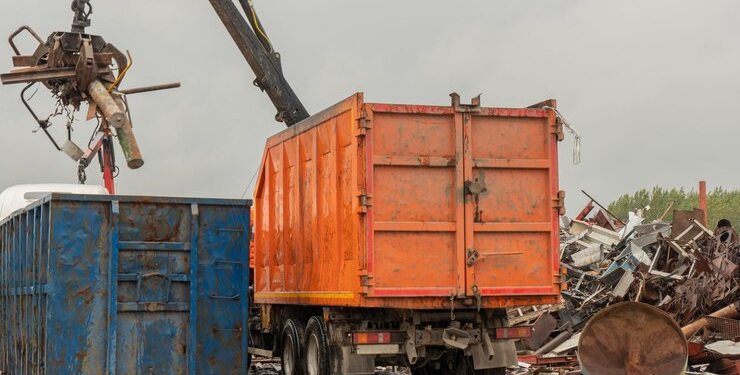Commercial Waste Solutions for a Greener Tomorrow

As the world shifts towards a more sustainable future, businesses are recognizing the importance of reducing their environmental footprint. One crucial aspect of achieving this goal is implementing effective commercial waste solutions. By adopting responsible waste management practices, companies can minimize their impact on the environment, reduce costs, and enhance their reputation.
Implementing Sustainable Waste Management Practices
Implementing sustainable waste management practices requires a multi-faceted approach that involves reducing, reusing, and recycling waste. Businesses can start by conducting a waste audit to identify areas of improvement and develop a waste management plan that prioritizes sustainability. This can include implementing recycling programs, reducing packaging waste, and dumpster rental services that provide a convenient and efficient way to manage waste.
The Benefits of Recycling
Recycling is a critical component of commercial waste solutions, as it helps to conserve natural resources, reduce landfill waste, and decrease greenhouse gas emissions. Recycling also saves energy, reduces pollution, and decreases the need for extracting and processing raw materials.
The Consequences of Improper Waste Disposal
Improper waste disposal can have devastating consequences on the environment, including air and water pollution, soil contamination, and loss of biodiversity. When waste is not disposed of properly, it can end up in landfills, where it takes hundreds of years to decompose, releasing methane and other greenhouse gasses into the atmosphere. Moreover, improper waste disposal can also lead to the pollution of waterways, posing a significant threat to aquatic life. The trade waste disposal practices that prioritize sustainability are essential to mitigate these negative impacts.
Empowering Change through Education and Awareness
Raising awareness about the importance of sustainable waste management is crucial for driving behavioral change and promoting environmentally responsible practices. Education plays a vital role in empowering individuals to make informed decisions about waste management, and businesses can take the lead in promoting sustainable practices. By educating employees about the consequences of improper waste disposal and the benefits of recycling, companies can encourage responsible waste management habits. Moreover, public awareness campaigns, educational programs, and community outreach initiatives can help to raise awareness about the importance of sustainable waste management and promote a culture of sustainability. By working together, we can educate and inspire individuals to take action and make a positive impact on the environment. Additionally, educational institutions can incorporate waste management and sustainability into their curricula, ensuring that future generations are equipped with the knowledge and skills needed to address the waste management challenges of the future.
The Importance of Collaboration and Innovation
Collaboration and innovation are essential for developing effective commercial waste solutions. Businesses can partner with waste management companies, government agencies, and community organizations to develop innovative solutions that prioritize sustainability. This can include investing in new technologies, such as waste-to-energy facilities, and developing closed-loop systems that minimize waste output.
Government Incentives and Regulations
Governments around the world are implementing regulations and offering incentives to encourage businesses to adopt sustainable waste management practices. These incentives can include tax breaks, subsidies, and low-interest loans for businesses that invest in sustainable waste management technologies. By working with governments and regulatory bodies, businesses can stay ahead of the curve and capitalize on opportunities to reduce their environmental footprint.
Conclusion
In conclusion, commercial waste solutions are critical for achieving a greener tomorrow. By implementing sustainable waste management practices, reducing waste output, and promoting education and awareness, businesses can significantly reduce their environmental footprint. By working together and investing in innovative solutions, we can create a more sustainable future for generations to come.






